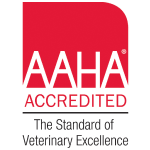Fall is finally here, and it’s time to enjoy that crisp fall air! As the season changes, new hazards will emerge and can put your pet’s health at risk. At South Hyland Pet Hospital, your pet’s health is always a priority, and we’re here to guide you through the most important safety concerns.
Here’s what you need to know about keeping your pet safe this fall.
Wildlife
Wildlife can be quite active during the fall as they prepare for the colder months ahead. While they may seem friendly, it’s essential to keep your pet at a safe distance. Wild animals can spread disease, and their behavior can be unpredictable.
When it comes to dangerous wildlife, snakes are a serious concern during the fall months. While animals such as foxes and raccoons are easy to spot, snakes can hide under piles of fallen leaves and are usually more challenging to see. It’s a good idea to know what kind of venomous snakes are common in your area and how to identify them. It’s also essential to avoid areas where snakes may be hiding and keep a close eye on your pet when they’re outdoors.
Rodenticides and Other Toxins
As wildlife prepare for colder months ahead, many homeowners notice an increase in rodents seeking shelter in or around their homes. Because of this, rat poison and rodenticide use increases during the fall.
Unfortunately, rodenticides are highly toxic to pets and can even be fatal. It is best to avoid using these products when possible. If necessary, only use rodenticides in areas your pet does not have access to and ensure they are stored safely out of your pet’s reach.
Another cold weather toxin you should be aware of is antifreeze. Antifreeze is commonly used in cars and contains a toxic ingredient known as ethylene glycol. Even small amounts can cause devastating kidney failure that can be fatal for your pet.
If you believe your pet has consumed a toxic substance, it’s critical to seek emergency veterinary care. You can give us a call at 952-884-1868. If your emergency occurs after hours, please use our emergency resources page to find the emergency facility closest to you.
Mushrooms
Mushrooms thrive in the cool fall air and are an important consideration when it comes to keeping your pet safe. While only a small percentage of mushrooms are considered toxic, mushroom identification can be tricky. The best way to avoid mushroom problems is to keep your pet far away from any mushroom variety.
If you’re out walking with your dog, make sure you monitor them closely to reduce the risk of ingestion. You’ll also want to check your yard frequently for any mushroom growth. This is especially important around your garden or wet areas where mushrooms are more likely to grow. If you find a mushroom in an area your pet frequents, remove it as soon as possible to keep your pet safe.
Final Thoughts
At South Hyland Pet Hospital, we want fall to be a fun and festive time for our furry friends. We hope these tips will help keep your pet safe and healthy this season. If you have additional questions about fall safety or would like to schedule an appointment, please give us a call at 952-884-1868.
Image credit: Unsplash


